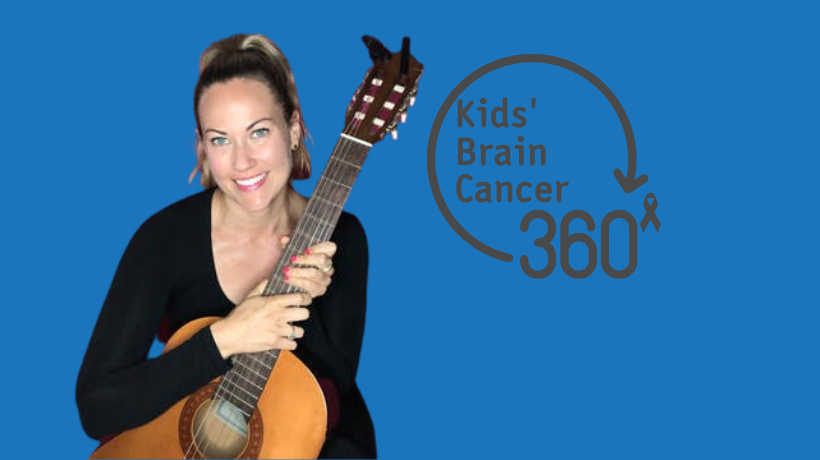
Music Therapy Interview – Sarah Punch
We partnered with The Kids’ Cancer Project on their Kids’ Brain Cancer 360 editorial series with our Music Therapy Manager, Sarah Punch. Sarah was Connor’s music therapist, and is an integral member of the RCD Team. She provides her perspective as music therapy specialist dedicated to helping children with brain cancer.
There are common misconceptions around music therapy. One is that it is about teaching music. Another is that it’s a form of entertainment. It’s actually an allied health profession, under the same umbrella as speech pathology and OT (Occupational Therapy), in which we use music as a tool to achieve therapeutic goals.
For many years I have worked actively with kids who have brain cancer. It is the most horrific of childhood cancers and is also the biggest killer of kids in terms of disease.
Where does it feel we’re at in 2021 with this collection of cancers? I think the amount of funding and attention that has gone into the field of childhood brain cancer has been pretty underwhelming. One major reason that survival rates have not been improving is the lack of funding and attention it receives.
Having said that, I believe in the last two to three years there has been a push for financial backing from the government, and from other organisations, to fill research positions and clinical positions so we develop the capability to make change.
These kids are dealt a very unfair hand. They have a different journey to kids with other cancers. There is surgery and treatment involved that can alter their little personalities and affect cognition and the things they are capable of doing. It can change their ability to think, speak, walk and regulate their emotions. So even if you get through the clinical experience, you can be left with a deficit for the rest of your life.
This is shifting. I think in the next decade we’ll see improvement in knowledge, therapies and approaches.
At RCD we have our music therapy program and things are going well. We are coping with demand and we have just employed our own music therapist here in Melbourne thanks to a generous grant. However, in the hospital setting more resources are needed. The allied health departments are clearly stretched.
Demand outweighs what is reasonable. I speak with colleagues and they’re exhausted, they’re burnt out, particularly with procedures around COVID that have made things even more difficult in the health setting.
Fortunately, we’re all evolving to recognise the importance of not overcommitting. As our professions mature, so do we. We have to look after our own health and wellbeing first, to ensure we’re available to provide the high-quality service these children deserve. That doesn’t come from doing endless (and often unpaid) overtime, or from burning out.
Music therapy is not curative, it is about improving quality of life and outcomes. If a child is on the brain cancer journey, they require an enormous level of care and support, including a range of allied health services. Right now, that’s not always available, but I’m hopeful we’ll see improvements in this space.
Content provided by Chris Sheedy and originally published on The Kids’ Cancer Project website.